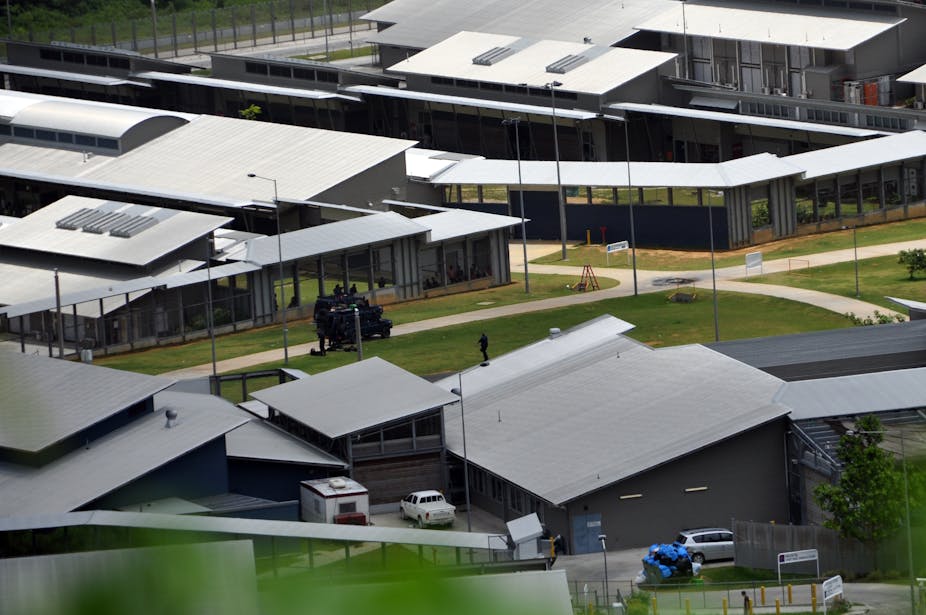The “prison-like” immigration detention facilities on Christmas Island are not appropriate for asylum seekers, and there has been a rise in the demand for mental health services at the facility, according to a damning report released today by the Human Rights Commission.
Human Rights Commission president Gillian Triggs visited the island in October and found overcrowding remains a problem, with single adult men detained alongside families with children, posing a risk to safety, and potentially leading to a breach of Australia’s obligations under the Convention on the Rights of the Child.
The Commission also highlighted uncertainty among asylum seekers detained on Christmas Islan, with many unsure of when they might be transferred to a regional processing country under the government’s new asylum seeker policy, and if they are transferred, how long they might expect to stay. It said some detainees had expressed concern about their safety following transfer.
“What’s alarming is this report documents the assistance of government and the department in creating conditions of detention we know are related to mental health problems, particularly in vulnerable groups like children,” said Professor Louise Newman, director of the Monash University Centre for Developmental Psychiatry & Psychology.
She added that the mental deterioration seen on Christmas Island was largely related to the circumstances of peoples’ detention.
“What they’re noting (in the report) is that those broader issues of uncertainty, including a sense of hopelessness and the indefinite and arbitrary nature of detention are major factors contributing to people’s mental deterioration,” Professor Newman said.
The disempowerment that comes from living in a chronic state of uncertainty is a major mental health issue for asylum seekers, said Dr Belinda Liddell, postdoctoral research fellow at University of New South Wales.
“There has to be some level of agency or control over the outcome. Asylum seekers are very driven people, they’ve had to do a lot to get here in the first place and being stuck in that limbo state without any certainty or decision-making power rally does impact directly on mental health.”
Dr Liddell added that there was scientific evidence to show uncertainty is a real driver undermining mental health.
The Commission said in some areas conditions of detention on Christmas Island had improved since the Commission’s last visit in 2012, including the introduction of week long visits each month by a psychiatrist, however it also said that the mental health service currently operating on Christmas Island may not be able to meet the increased level of demand.

